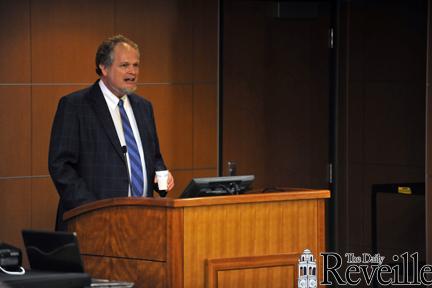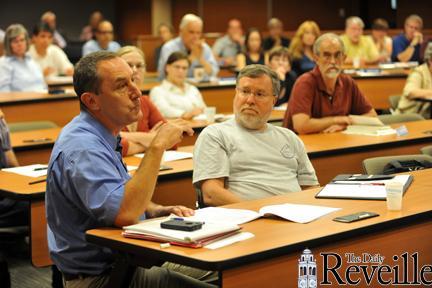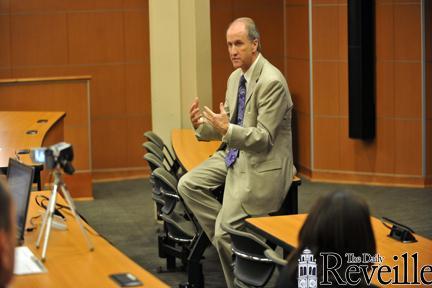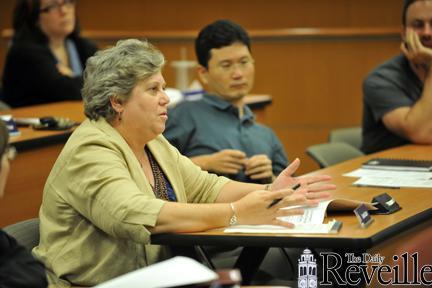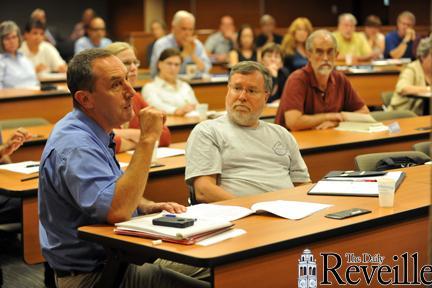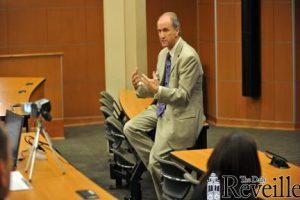While the plus-or-minus grading resolution has garnered more attention than most legislation passed though the University’s Faculty Senate, all bills and resolutions introduced to the group go through a long, sometimes behind-the-scenes, process.
While many resolutions have the potential to trigger changes on campus, before those changes are implemented, legislation must be introduced and voted on, and possibly go to committees, according to Faculty Senate President Kevin Cope.
The process begins when any senator or faculty council member has an idea for a resolution.
“A senator doesn’t necessarily have to introduce the idea beforehand,” Cope said. “The person can simply raise their hand during the new business section of the agenda. However, many people choose to present their bills beforehand.”
After being proposed, bills are read for the first time and the senators decide whether to move the resolution to debate. If the bill fails in its initial stage, then it usually is not heard from again, he said.
“The Faculty Senate is very deliberate in its actions,” Cope said. “We determine the merits of a bill and then stop. Only one or two bills have been presented a second time that I know of.”
The next step varies. With the plus-minus grading resolution, the senate established an Ad Hoc committee to gather more information before it advanced to a second reading.
“Establishing a committee helped us find out how other schools dealt with suffix grading and how it affected GPAs of students,” said Mandi Lopez, veterinary medicine professor and chair of the Ad Hoc Committee.
At the resolution’s second reading, a vote is taken. But that isn’t the final step before a resolution is adopted by the University. The Faculty Senate must speak with the affected groups in order to get their approval.
Although the Office of Academic Affairs will have the final say on the plus-minus grading bill, Cope said administrators should follow through with the resolution if passed.
“The Faculty Senate represents the collective will of the faculty,” Cope said. “They would be ill-advised to ignore the faculty.”



